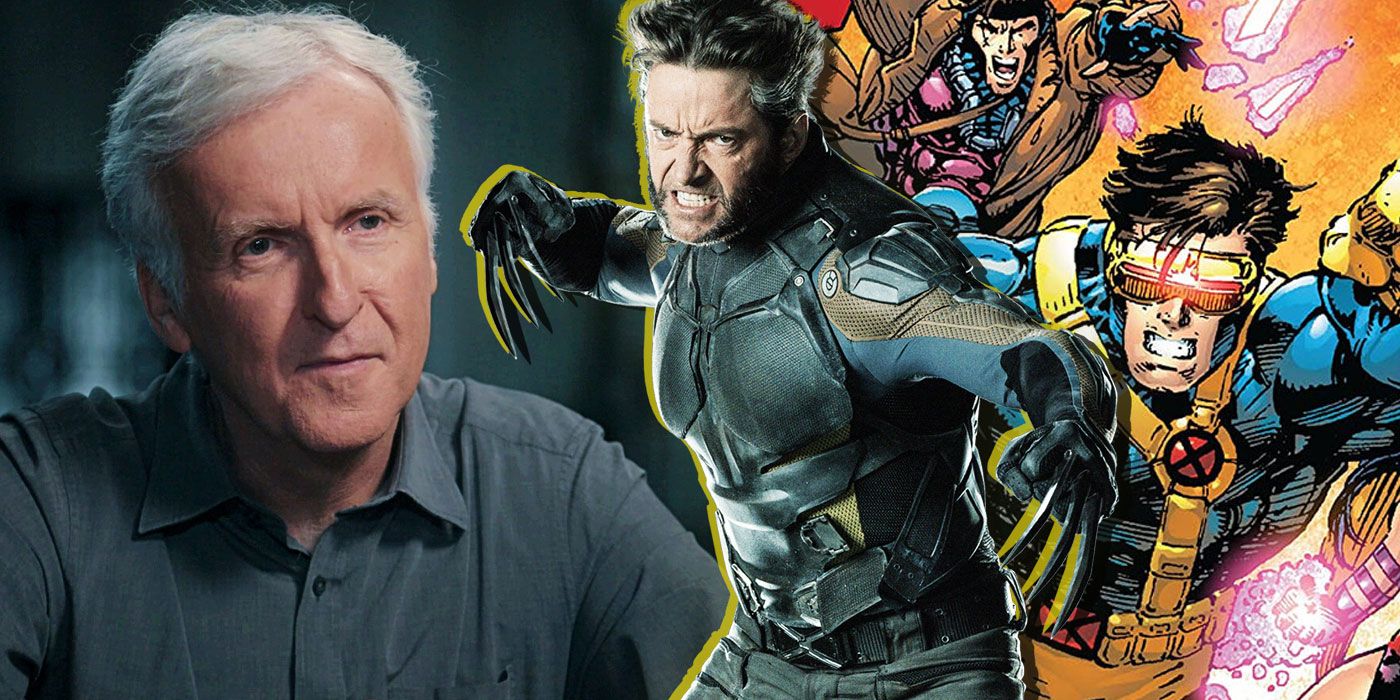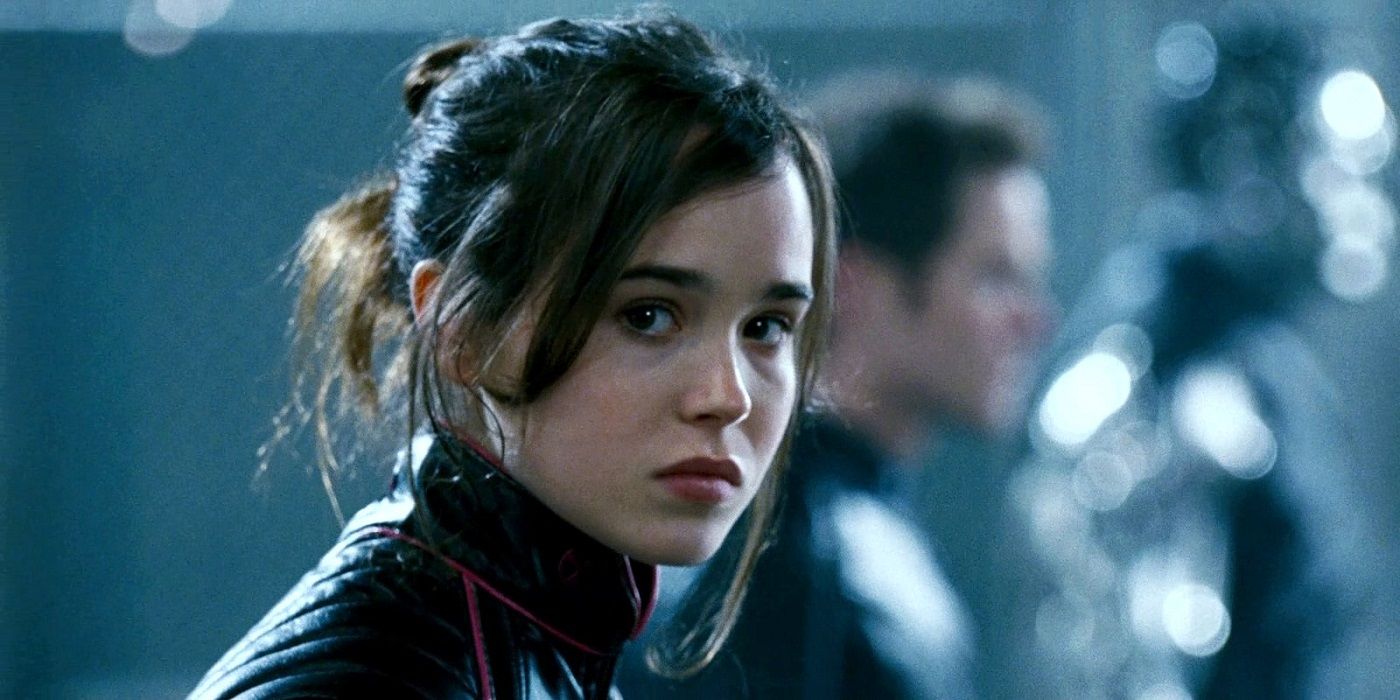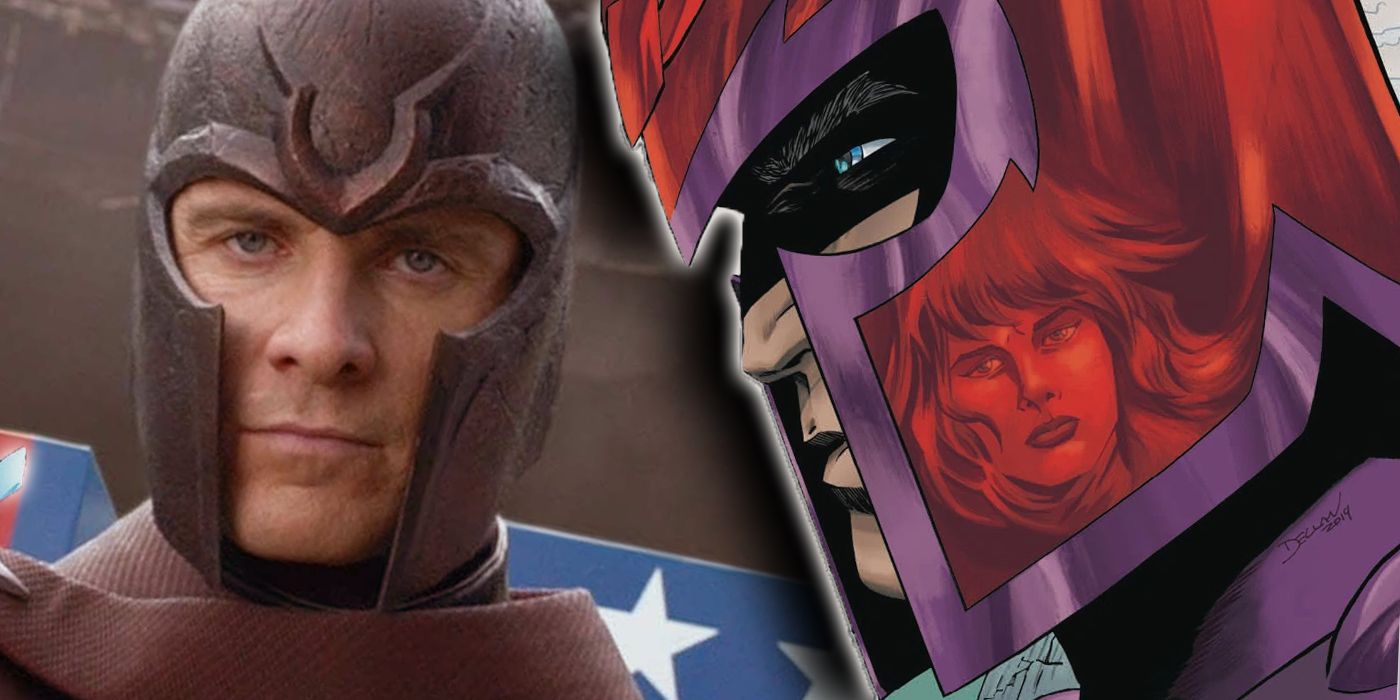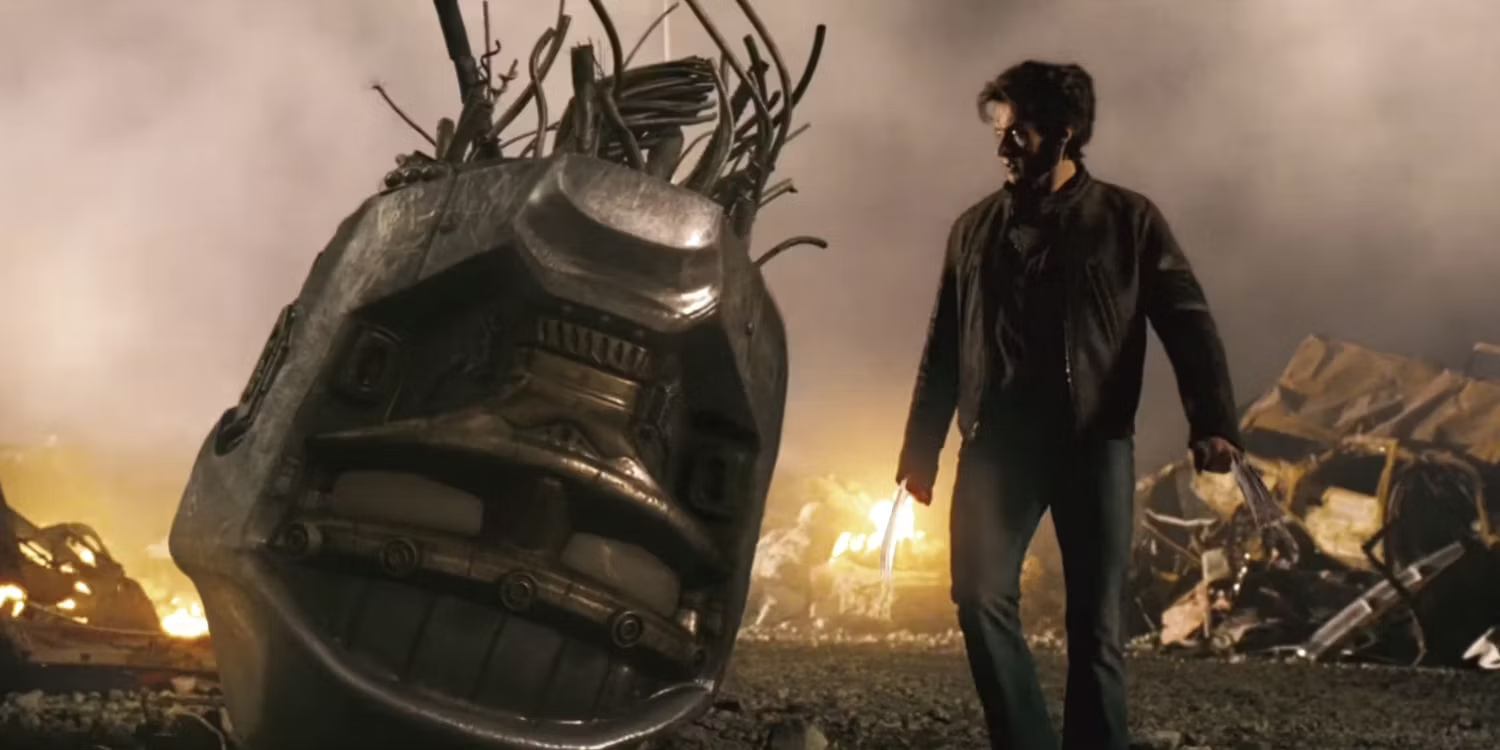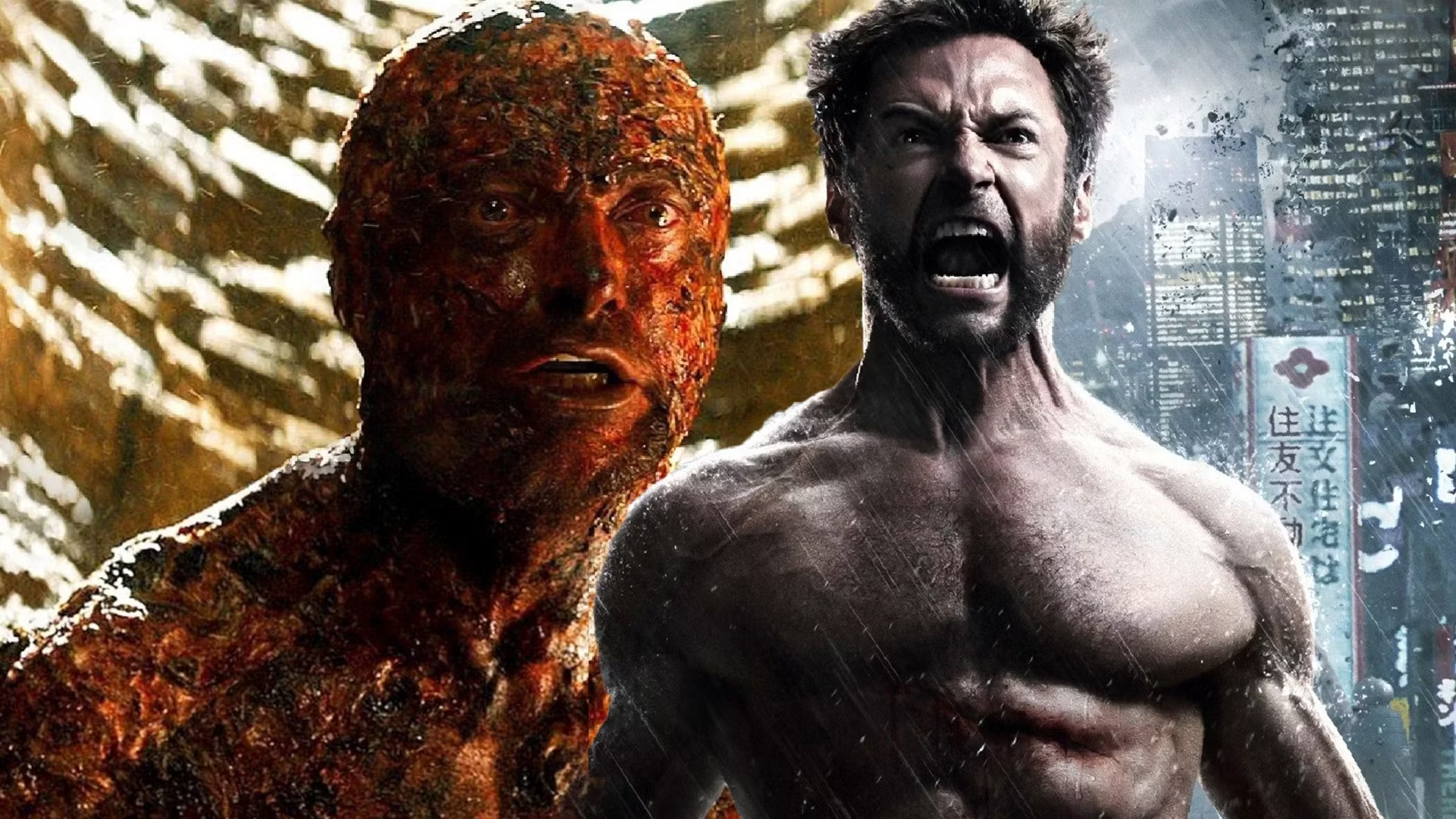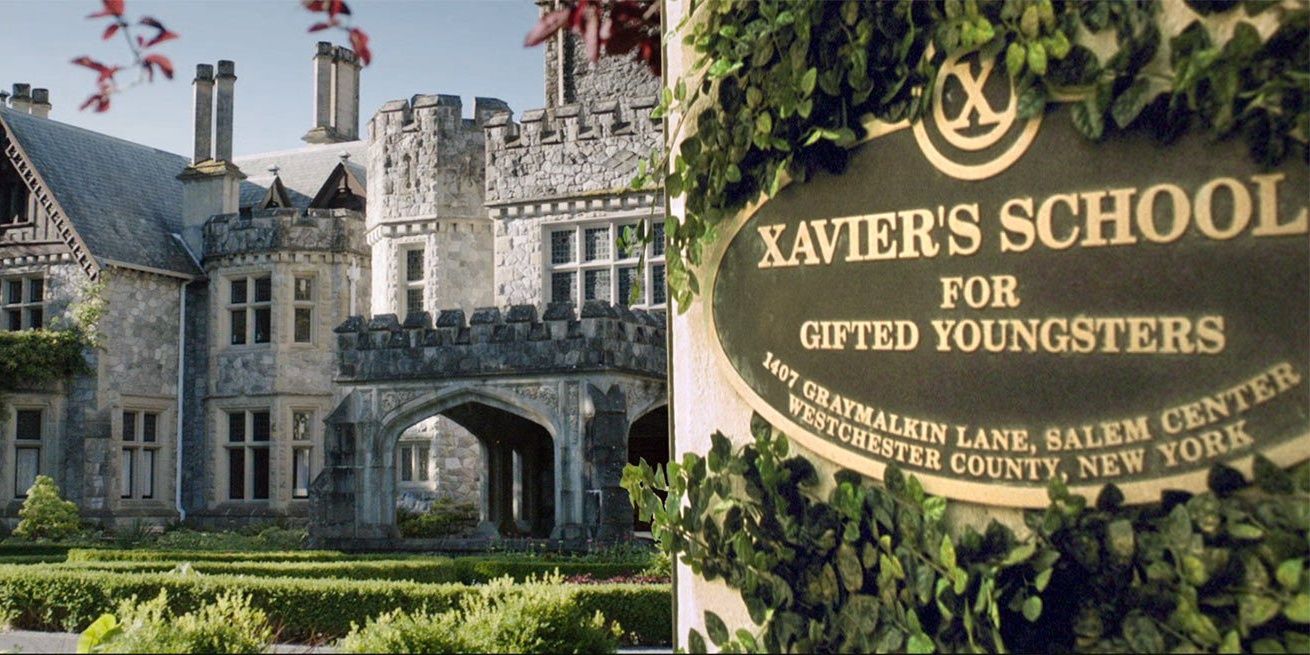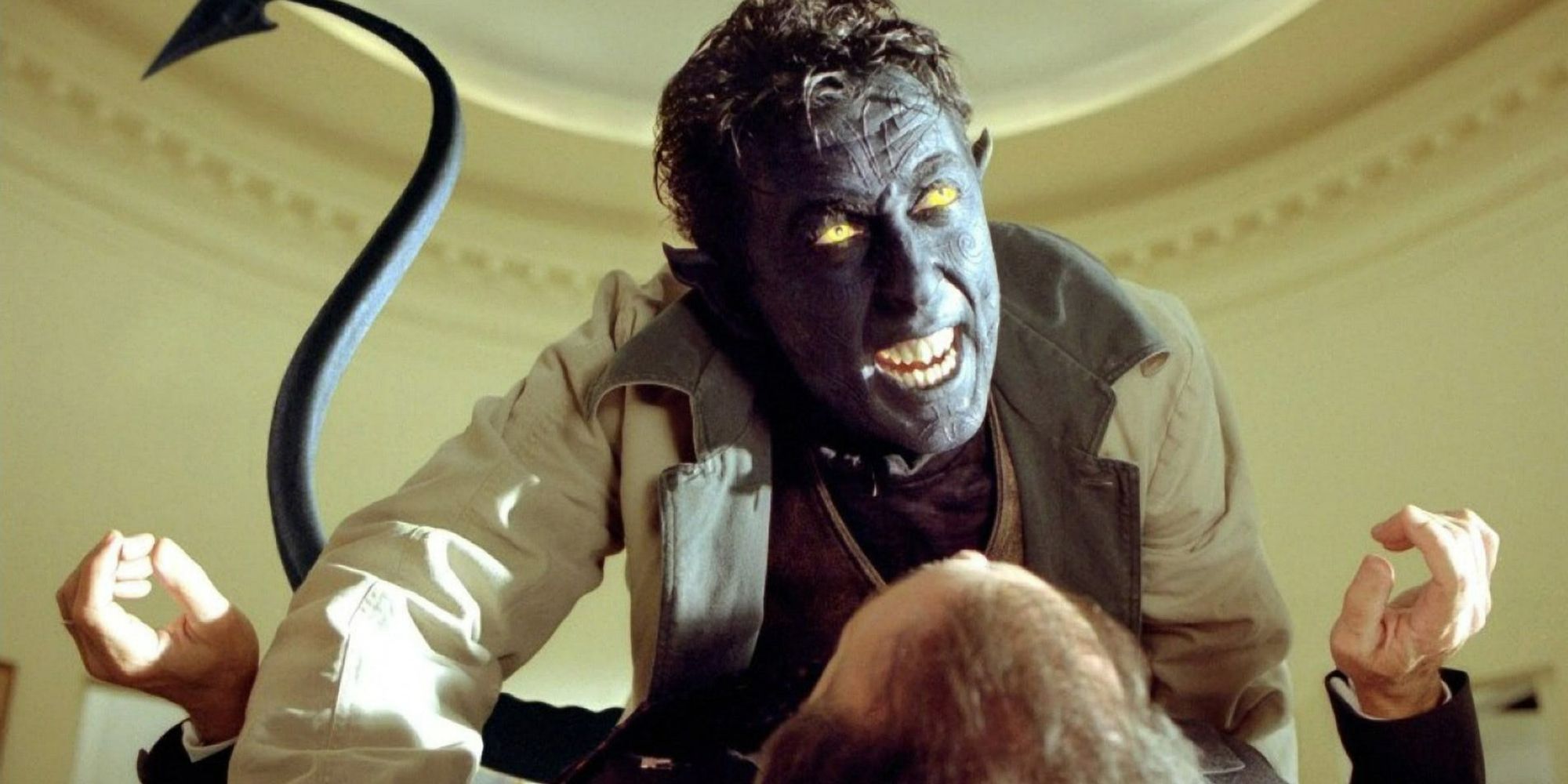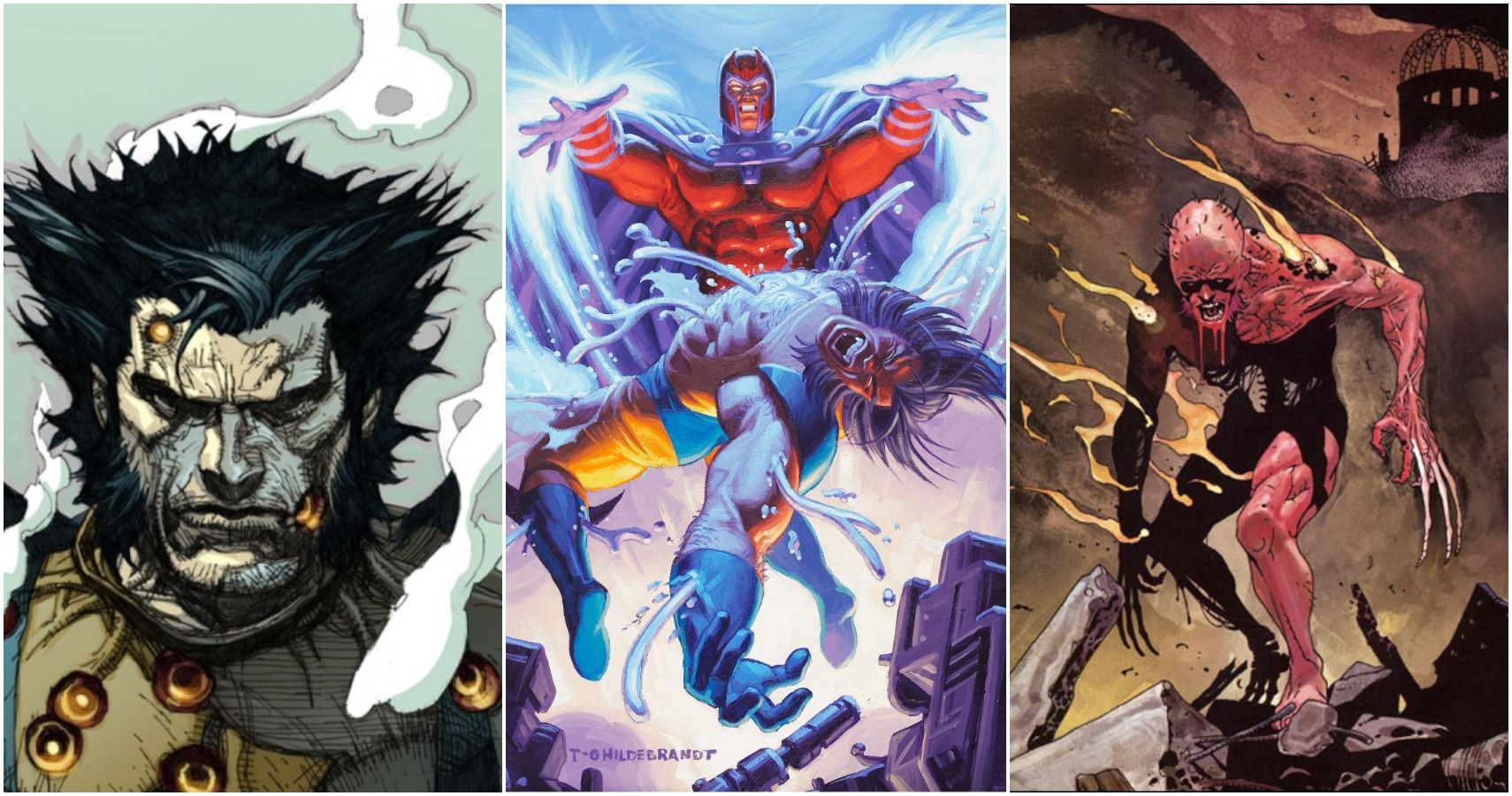Welcome to the 24th installment of Page One Rewrite, where I examine genre screenplays that just couldn't make it. This week, James Cameron and company attempt an X-Men film. And if you have future suggestions, please let me know on Twitter.
The screenwriter for Wolverine and the X-Men gives fans some hope -- Gary Goldman has story credits on hits like Big Trouble in Little China, Total Recall, and Navy SEALs. By June 18, 1991, this draft was being produced by Carolco Pictures, hot off their Terminator 2 success, with James Cameron onboard as producer and Cameron's then-wife, and future Oscar winner, Kathryn Bigelow, slated to direct. According to Chris Claremont, this attempt was doomed when Stan Lee asked Cameron if he had any interest in Spider-Man. Following that, Cameron's focus shifted to a never-produced Spider-Man movie, and the X-Men languished.
Pryde of the X-Men
Unsurprisingly, the script introduces the X-Men's world with a young neophyte mutant serving as our viewpoint figure. In this case, Kitty Pryde is a seemingly ordinary teenager attending an unnamed "inner city high school." Watching her from a distance is Wolverine.
Wolverine saves her from a local gang and arranges for Kitty to meet with Professor Xavier, even though he doubts she's ready to become an X-Man. Kitty's inability to use her powers is a running bit throughout the script -- when we first meet her, she can't even keep her clothes on when she phases through an object.
She soon travels to Xavier's School for Gifted Youngsters, a "more than a little sinister" looking mansion on the sprawling grounds of the famous Exton Academy. There, she meets the team: Cyclops, Nightcrawler, Jean Grey…and Jason Wyngarde. The character descriptions are comics-accurate with some interesting flair, such as "Xavier exudes an intimidating intelligence, like a benign Hannibal Lecter."
Even though the inclusion of Jason Wyngarde, someone comics fans know as the villainous Mastermind, might throw diehards for a loop, the dynamics are exceedingly loyal to the source material. Cyclops is withdrawn yet madly in love with Jean. Mastermind also harbors an intense, unrequited love for Jean. Nightcrawler's avuncular personality hides the loneliness caused by his physical appearance. Wolverine's a gruff loner but has found a home at Xavier's and a means to make peace with his violent instincts. The team lives and acts as a family; several sequences feature them eating dinner, doing chores, and even grocery shopping together.
The screenplay doesn't introduce an antagonist until the second act, but the opening pages have no shortage of action sequences. Goldman uses the Danger Room more than the Fox movies ever dreamt of. The sequences work as the best comic moments do -- providing some visual flair while also giving the hero's character moments and hazardous puzzles to unravel.
But Don't Call Him Magneto
The villain of the piece is the largest hurdle for fans to get over. After establishing the heroes, we meet the dangerous yet brilliant industrialist Thomas Prince of "The Citizen Crusade." Thanks to his Metalworks corporation, he's a millionaire, and now he wants to be President. His stage design evokes 1930s Nazi rallies, where he espouses survival of the fittest, rejecting calls to help Americans who contribute nothing.
By Prince's side is his chief of security, "an elegant and statuesque African-American woman named Atalanta." (Since Storm isn't in this script, yet Angela Bassett was always rumored for a role, it's possible this part was written with her in mind.) Atalanta is an invention of Goldman's, but she feels like a female warrior from a Chris Claremont comic. She "does some vicious bone-crunching with her bare hands" when fighting protestors and has a few one-on-one scraps with Wolverine where she more than holds her own.
Prince's mutant powers are kept a secret for much of the script, building up tension for the big reveal that…well, he's Magneto. The script doesn't call him that; his personality and backstory have little in common with Magneto. However, he has magnetic powers and dreams of dominating humanity, so the inspiration's clear.
God Loves, X-Men Kill
Prince seems more amused than threatened by the X-Men and successfully implements a plan to draw Mastermind away from Xavier and to his side. Prince then uses Mastermind's illusion-casting powers to frame the X-Men in a deadly series of attacks on various churches, mosques, and synagogues. Having fanned the flames of anti-mutant sentiment, Pierce then sends Mastermind and his Citizen soldiers to invade Xavier's school and kidnap the team. There's a cool sequence with the Danger Room training robot being sicced on the soldiers like an attack dog, but the Citizens ultimately win. Wolverine and Kitty manage to escape, pairing the neophyte who's unsure she belongs with the older grouch who felt she wasn't ready in the first place.
Prince's frame job is so convincing the X-Men are swiftly placed on trial and sentenced to death. An obsequious governor allows Prince to house the team at his compound -- "both an industrial facility and the military base for a vigilante army" -- where the X-Men are shackled to electrified crucifixes. Mastermind grows uncomfortable, realizing what he's done to his former teammates.
After some bonding moments with Kitty, Wolverine takes her to meet Angel, a former X-Man who now lives discreetly on a rural farm. Wolverine pleads with Angel to help them stop Prince. Angel refuses his call to action, though, revealing that he's undergone a brutal surgery to remove his wings. His conscience pricked; however, he does give Wolverine a pickup truck for inconspicuous travel and offers Kitty safe harbor on his farm. Even though Wolverine gives his blessing for her to stay, she refuses, now determined to fight for her new family.
When Kitty and Wolverine invade the compound, she's quickly captured, and Wolverine endures a brutal confrontation with Prince. He forces Wolverine to stab himself in the throat, followed by other graphic attacks, leaving Wolverine a "freakish lump of flesh and metal on the floor." Atalanta and Mastermind then bury his body in a scrapyard.
A Gooey, Oozing, Crusty Hero Arises
As the X-Men's execution date nears, Prince forces Mastermind to choose between him and his former friends. When Mastermind stands with the X-Men, Prince swiftly murders him. With his final words, Mastermind apologizes to Jean.
Meanwhile, after six weeks have passed, Wolverine's healing factor enables him to claw out of his grave. Goldman offers this evocative description of the moment: "Yecchh! Look at him. Gooey. Oozing. Crusty."
What follows is an explosion-packed finale set at Prince's industrial site (actually not much different than Terminator 2's big set piece). When Prince is exposed as a mutant, he decides to kill everyone in the crowd to keep his secret…a silly decision given that he's ordered the event televised, anyway. When the audience sees the X-Men working to save them, their opinion of those ghastly mutants changes.
Each X-Man receives a character moment, paying off their respective arcs, and Wolverine faces off with Prince, who's grabbed Kitty as a hostage. Prince orders him to back off, or he'll kill Kitty (who can never phase when she really needs to) with her metal necklace. But Wolverine orders her to phase, confident she can do it and jabs his claws through her into Prince.
In the final scene, the team goes off on separate retreats -- Xavier says the President wants to meet them, but he'll have to wait until vacation's over. Xavier shakes hands with Wolverine, who's leaving to spread Mastermind's ashes in the woods. Wheeling back inside the mansion, Xavier closes the door, and the credits roll.
Fan Service
Numerous bits are taken from the comics. The school is in Westchester County, New York, and we're told Xavier's parents once worked on the Manhattan Project, developing the atomic bomb, exposing them to radiation that mutated Xavier in utero. (Given Xavier's age, this makes more sense in 1991 than it did in 1963 when Stan Lee introduced the idea.)
Goldman seems especially interested in the Chris Claremont/John Byrne era of the comics. There's a riff on Jean's "let me see your eyes" moment with Cyclops, Nightcrawler indulges in some swashbuckling, and not only is Kitty our viewpoint character, but she arrives in a yellow Checker cab, just as she did in the comics.
Non-Fan Service
Goldman's script has the same issue with the X-Men's costumes as the eventual Fox films -- "issue" as in they clearly find the costumes embarrassing. During one Danger Room sequence, he writes: "The X-Men are 'warming up.' Each wears a different combination of X-Wear, which is as close to costumes as we're going to get in this movie. Their 'nom de guerre' are stenciled on their backs…"
Some alterations to character dynamics are here to give audiences something familiar, but diehard X-fans likely wouldn't be pleased to see Nightcrawler and Kitty flirting with one another. Perhaps to simplify the action sequences, Nightcrawler doesn't have his teleportation powers, relying instead on his enhanced agility.
There's also the question of why Xavier's School can't simply be Xavier's School. There's no payoff to the concept of the Exton Academy unless it's there to justify how a mansion can double as a school.
Approved by the MPAA
Presumably, the studio wanted a PG-13 rating, though, at times, the material's a little more adult than you might expect. The descriptions of Wolverine's mutilation are extreme, and the montage of the "X-Men" causing a bloody rampage at various houses of worship, with Xavier's disembodied head declaring "God is dead!" to the horrified parishioners (not to mention those electrified crucifixes), might've been a tad controversial at the time. Additionally, Jean uses her low-level telekinesis to heave knives and sharp objects into her opponents' eyes.
Mastermind's frustrated sexuality is also a continued plot point. He's kicked off the X-Men after he nearly tricks Jean into going to bed with him. Later, Prince rewards Mastermind with a harem of scantily clad young women and is handed a box of condoms before they're left alone.
Did We Dodge a Bullet? (Unlike Mastermind.)
It's difficult to say if Wolverine and the X-Men would've been much better or worse than 2000's X-Men. What the script has in its favor is something the Fox movies never entirely captured -- the idea of the X-Men as an unusual but loving family. There's a specific dynamic between the cast that fans of the comics and '90s animated series will instantly recognize. And even if Wolverine gets co-billing, Goldman balances the characters well. Cyclops receives more characterization here in only a few pages than 20 years of the Fox films provided.
Wolverine is also written with more personality than the Fox films saw fit to provide. Rather than snarling and offering occasional sarcastic quips, this interpretation is far closer to Claremont's characterization. This Wolverine is older, wiser, and cognizant of his role as the team's backbone.
Judged as a screenplay, this works as an entertaining (if occasionally mindless) popcorn flick. There's a third-act surprise, giant explosions, and clever uses of the various superpowers. Mastermind also seems positioned as a "breakout" role, meaning there might be an alternate reality where a young Johnny Depp betrayed the X-Men.
The villain is the screenplay's largest flaw- and it's truly a large one. Aside from the visceral purist's reaction to having Magneto represented so inaccurately, Prince feels generic even without any bias from the comics. Is it a coincidence that Cameron would also reinterpret Electro in his Spider-Man screenplay as a charismatic industrial magnate with a power fetish? (And also without those silly comic book names and a different civilian name, because why bother to keep something like that consistent?) Bluntly, it's the most obvious and cliché move to make. Sir Ian McKellen's Magneto far outshines this loser.
Ultimately, the deciding factor is a fan's affection for Magneto. Despite their faults, the Fox films did present a truly complex, memorable figure. Conversely, the X-Men themselves were usually bit players in their own stories. Wolverine and the X-Men addresses that issue, and if similar care were put into the antagonist, it could've been one of the "unproduced comics flick" greats.

